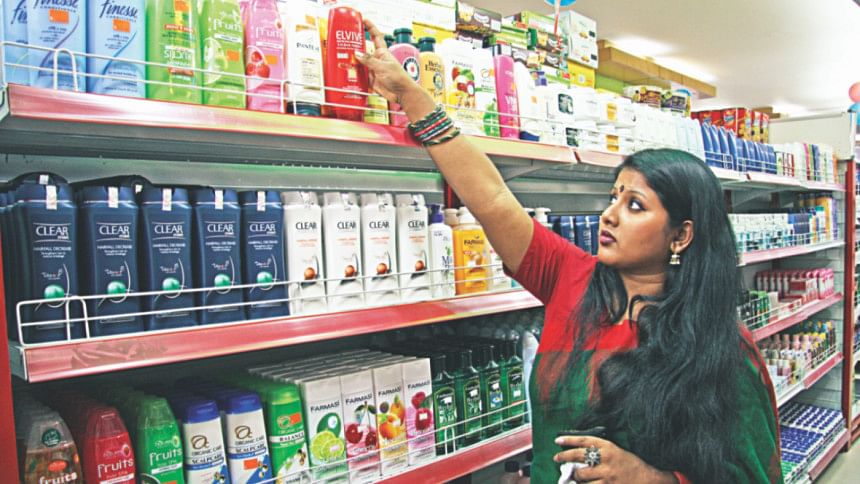Rising middleclass brings cheers for supermarkets

The rise of the middleclass and their growing purchasing power are driving the growth of the supermarket business in Bangladesh, said insiders.
According to the market players, the sector is likely to witness further growth riding on rapid urbanisation and higher per capita income.
The market size of the country's supermarket is roughly Tk 2,500 crore and the growth has been almost 15 percent per year for the last couple of years, said Sohel Tanvir Khan, business director of Shwapno, the market leader.
“Convenience and reliability are bringing grocery buyers to the super shops,” he said.
The concept of supermarket is not very old in Bangladesh.
Agora began the journey in 2001 in the capital. Shwapno, Meena Bazar, Nandan, Almas, Carrefamily, Pick & Pay, Daily Super Shop, Unimart and some others entered the business to attract the attention of middleclass consumers.
According to a recent review report by IDLC Finance, there are 121 supermarket outlets in the country. Of them, Shwapno has 76 outlets in Dhaka, Chattogram, Cumilla, Gazipur and Sylhet.
Presently, Agora has 15 outlets and Meena Bazar 17. Once a key competitor, Nandan, has just two stores. The other super shops in Dhaka city are Almas, Carrefamily, Pick & Pay, Daily Super Shop, Unimart and Prince Bazar. The IDLC report said the supermarket industry's market size was around Tk 1,500 crore in 2015. With rapid urbanisation, the industry is expected to grow by 15 times by 2021 from the current one.
Yet, the share of the supermarket in terms of general trade is very insignificant: it stands at only 1.52 percent, indicating an untapped potential for further growth of the sector.
Bangladesh's consistent economic growth of over 7 percent for the last three fiscal years and the rising middle and affluent class who are estimated to be around two crore will drive the growth of the supermarket in the years to come.
Per capita income rose to $1,751 in the last fiscal year. Bangladesh is the 42nd largest economy in the world in nominal terms and 31st largest by purchasing power parity.
The consumers belonging to the middle and affluent class want to buy everything under a roof and here comes the supermarket where a wide array of products are available -- groceries, dry foods, fish & meat, household goods and equipment, electronic items, clothing and so forth.
“We want to double our outlets to 150 by two years to strengthen our market shares,” Khan said.
Mahbubul Haque, acting branch in-charge of Agora's Uttara outlet, said an increasing number of customers were coming in to their outlets.
Zakir Hossain, general secretary of the Bangladesh Supermarket Owners Association, recalled that though the super shop culture was introduced 17 to 18 years ago, they had to struggle a lot to attract customers who were not familiar with the concept.
“Now many consumers prefer super shops to traditional marketplaces because of their convenience and quality of products,” he said.
Hossain, however, said an existing 4 percent sales tax has created a burden, often deterring customers from making purchases at supermarkets.

 For all latest news, follow The Daily Star's Google News channel.
For all latest news, follow The Daily Star's Google News channel. 



Comments